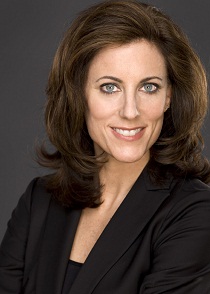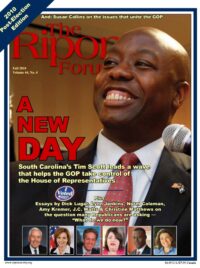 Like day following night, as the mid-term election recedes, the presidential contest intensifies. Even though three of the last four incumbent presidents won reelection, no fewer than a dozen Republicans appear poised to run for their party’s nomination in 2012. Far from foolish, these ambitious aspirants perceive myriad opportunities in the current political environment.
Like day following night, as the mid-term election recedes, the presidential contest intensifies. Even though three of the last four incumbent presidents won reelection, no fewer than a dozen Republicans appear poised to run for their party’s nomination in 2012. Far from foolish, these ambitious aspirants perceive myriad opportunities in the current political environment.
The economy, by President Obama’s own admission, is “stuck in neutral.” The 2010 mid-term election exit polls showed that 56% of those who voted believe that government is “doing too much” and 54% disapprove of how Obama is “handling his job as president.” Come January, Republican governors will serve in 29 states, including the recurrent presidential battlegrounds of Florida, Ohio, and Pennsylvania. According to reapportionment projections, Republican strongholds like Texas, Georgia, South Carolina, and Utah will cumulatively gain seven electoral votes, while reliably Democratic states like Massachusetts, New York, New Jersey, and Illinois will together lose five. Even excluding the oft-speculated on challenge to President Obama’s re-nomination, the existing conditions favor the GOP in 2012.
That said, Republicans should brace themselves for a raucous presidential nomination contest. Regardless of the winner, over the next sixteen months, the party is likely to experience rather fierce factional and ideological disputes. Elites will disparage populists. Conservatives will condemn compromisers. Tea Partiers will challenge the Washington establishment.
Republicans should brace themselves for a raucous presidential nomination contest … Elites will disparage populists. Conservatives will condemn compromisers. Tea Partiers will challenge the Washington establishment.
Amidst the chaos, the nomination contest is likely to follow one of two paths. One involves a competitive fight with no frontrunner, only a party favorite challenged by multiple candidates. The other involves an impressive insider and an electrically-charged outsider. Depending on whether Republicans reject or embrace their newly-elected conservatives, their presidential nomination contest will be similar to the Democratic battles in either 2004 or 2008. Former Massachusetts Governor Mitt Romney (like John Kerry and Hillary Clinton) is respected, accomplished, and disciplined. He is a safe choice and he’s most Republicans second choice. Former Alaska Governor Sarah Palin (like Howard Dean and Barack Obama) is exciting, unconventional, and audacious. She is a risky pick and she’s most Democrats fervent wish. Be careful what you wish for.
How were the others eliminated?
First, the invisible primary is closer to six years, not two. Most aspirants who have won a nomination either made a previous credible attempt (e.g., Richard Nixon, Ronald Reagan, Bob Dole, and John McCain), or distinguished themselves in some dramatic way (typically at the national party convention) in the presidential cycle prior to their winning (e.g., Franklin Roosevelt’s nominating speech for Al Smith, George McGovern’s drive to reform the nomination rules, and Barack Obama’s keynote address). If the aspirant has not already ascended to the national stage, they are unlikely to make the leap to party nominee in one jump.
In 2012 this means that it’s unlikely that Minnesota Governor Tim Pawlenty, Indiana Governor Mitch Daniels, Louisiana Governor Bobby Jindal, New Jersey Governor Chris Christie, south Dakota Senator John Thune, South Carolina Senator Jim DeMint, former Pennsylvania Senator Rick Santorum or retiring Indiana Representative Mike Pence will prevail. Mississippi Governor Haley Barbour is somewhat different in that he has served as the former chairman of the Republican National Committee and he now serves as the chairman of the Republican Governors Association. Still it seems more likely for him to wind up as number two, not one, on the national ticket. Although former Speaker Newt Gingrich has a high profile, he also possesses a controversial personal background and an uneven record of political leadership, which includes the Democrats gaining seats in the House of Representatives in a Democratic president’s sixth year in office (1998).
Second, in recent history, presidential aspirants win by leading ideological factions to dominate their party, while simultaneously attracting independents to their candidacies. For instance, Obama labeled himself a “pragmatic progressive” and pulled votes from both the center and the left side of the ideological spectrum. Palin who considers herself a “commonsense conservative” seems intent on following this model. Her new reality television show appears deliberately designed to showcase her as: (a) a courageous doer, not a big talker; (b) a practical problem-solver; and (c) a down-to-earth person who tries to live her values. Her likely aim is to get independents to like her again, so that when she campaigns, they will listen to her.
…in recent history, presidential aspirants win by leading ideological factions to dominate their party, while simultaneously attracting independents to their candidacies.
Former Arkansas Governor Mike Huckabee who ran unsuccessfully in 2008 is the one other aspirant who not only speaks for the conservative wing of the Republican Party, but also garnered votes from independents in places like Iowa. Like Palin and Romney, Huckabee raised money and doled out endorsements last year. Unlike them, he seems more tentative about pursuing the White House. In short, if the Republicans in 2012 look like the Democrats in 2004 or 2008, then it seems Huckabee may play the role (runner-up or spoiler) of former North Carolina Senator John Edwards.
But the challenge confronting Republicans goes beyond ideology and involves its coalition. Romney’s upper class status and traditional network comprised of business executives and entrenched party loyalists turns away the very people – working class and rural voters – the Republicans need to win the presidency. While some question the Tea Party’s inclusiveness, they are largely responsible for electing Marco Rubio to the Senate; Allen West and Kristi Noem to the House; and Susanna Martinez and Nikki Haley to governorships. These freshly-minted leaders, if empowered, will help the Republican Party peel away the groups (women, minorities, and blue collar workers) that regularly side with the Democratic Party. But they will only be effective, if they are stumping on behalf of a more “relatable” nominee like Palin or Huckabee.
Taken together and as the early polls indicate, the Republican presidential nominee in 2012 is likely to be Romney, Palin, or Huckabee. But which one makes it through the briar patch that is party politics will depend on how much the Republican establishment cedes to the ideological conservatives to whom the GOP owes its new House majority.
Lara M. Brown, Ph.D., is an assistant professor in the Department of Political Science at Villanova University and the author of Jockeying for the American Presidency: The Political Opportunism of Aspirants (Cambria Press, 2010).




